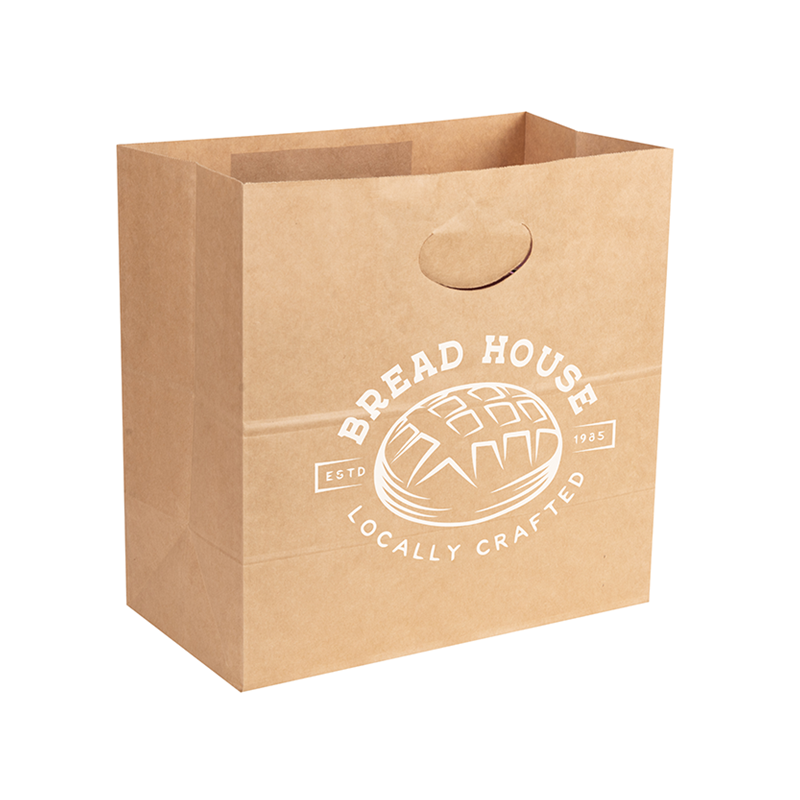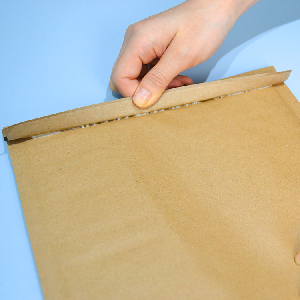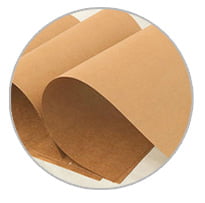Introduction

Take a walk down the streets of any busy city or small countryside town, and you’ll spot those iconic brown paper bags everywhere. From bustling grocery stores, weekend farmer’s markets to charming bakeries, the versatile brown paper bag acts as the perfect carrier for everything – vegetables, freshly baked bread, retail shopping and savory takeouts.
But why has the modest brown paper bag endured as such a ubiquitous staple? What makes it such an ideal packaging across food, retail and QSR sectors?
In this blog, we’ll explore:
Table of Contents
Let’s unwrap the ubiquitous journey of the brown paper bag!
Why Are Brown Paper Bags So Widely-Used?
Brown paper bags continue to be the choice of preference over plastic and other packaging for a variety of reasons:
Sustainable – Paper bags have a much lesser environmental impact than plastic bags. Being biodegradable and renewable, they are far easier to recycle and break down naturally.
Versatile – Brown bags come in a spectrum of sizes, shapes thicknesses allowing both retail and bulk use for an array of products across food, grocery, retail, medical and other sectors.
Customizable – Paper absorb ink beautifully, enabling brands to customize these bags into distinctive carriers reflecting company branding.
Premium Perception – Unlike plastic, paper bags signal quality and care towards customer experience rather than cost-cutting. The graceful aging through use only enhances visual appeal.
Protective Properties – Paper bags provide decent product protection against small impacts, liquid leaks, grease and moisture compared to plastic. Laminations further boost durability.
Economical – Basic brown bags start from less than a cent per piece, making them an affordable option for big volumes. They also take less storage space by folding flat.
With growing awareness on limiting plastic waste, the eco-friendly and customization properties will further drive preference for paper bags in future.
Brown Paper Bags vs Plastic Bags: A ComparativeAnalysis

How do brown paper bags compare to their main competition – plastic carry bags? Here is a side-by-side analysis:
| Parameter | Brown Paper Bags | Plastic Bags |
|---|---|---|
| Cost | Starts from half a cent per piece for regular bags. Premium versions with coatings can go up to $0.5+ | Generally cheaper than paper bags available at $0.01 to $0.05 per piece |
| Customization | Highly suited for brand imprinting with uncoated absorbent surface. More perceived value. | Very limited custom printing ability |
| Durability | Moderate puncture and tear resistance. Suitable for under 10 kg weights. Added coatings and thickness boost sturdiness. | High durability for heavy loads above 15-20 kg. Withstands impacts well. |
| Reusability | Low to moderate reusability since paper creases and tears over multiple uses. | High reusability potential due to thicker plastic resisting wear and tear |
| Recyclability | Highly recyclable since paper breaks down easier. Renewable material from sustainable forestry practices. | Difficult to recycle with mixed plastic waste ending in oceans and landfills. Not biodegradable. |
| Eco-Friendliness | Far less environmental impact with renewablesourcing. Biodegradable material. | Plastic production releases toxic emissions. Non-biodegradable and ocean polluting. Not sustainable. |
| Consumer Perception | Signals quality, premium experience and brand storytelling. Food safe material. | Perceived as cheaper alternative with concerns on hygiene and plastic waste. |
| Food Safety | Approval for direct food contact use with regulated food-grade materials and inks. Grease barriers improve use for food. | General purpose plastic raises concerns on chemical leaching and food contamination. Needs regulation. |
| Application Suitability | Ideal for retail shopping bags, grocery, bakery, farm produce, QSR, pharma and other lightweight contents. | Better suited for very heavy items like hardware, textiles, dense grocery. Higher durability carries more weight. |
While plastic bags score higher on costs and durability for heavy loads, paper bags trump them on customization potential, eco-credentials and consumer perception – making both formats suitable for specific applications rather than universally replaceable.
Fast Facts and Stats on Brown Paper Bags
- According to industry analysis, the global paper bags market crossed $4.7 billion USD in 2022 growing at a CAGR of 4.3% from 2023 onwards.
- USA, Canada and Europe represent over 60% of worldwide demand.
- Food and retail shopping remain top application segments making up over 75% of all paper bags consumption.
- Small-sized paper bags dominate globally with 60% market share compared to 40% share for larger and heavier bags.
- Demand is predicted to keep increasing with growing retail sectors added efforts on banning single-use plastics.
So whether it’s sourcing smaller custom printed bags or bulk commoditized options, adequate production capacities globally ensure stable supply.
What’s the Average Pricing For Custom Printed Paper Bags?

| Bag Type | Bag Size | Order Quantity | Price Range |
|---|---|---|---|
| Standard Brown Kraft | 12″ x 5″ x 10″ | 1000 bags | $100 – $250 |
| Bakery Bag | 4″ x 3″ x 8″ | 5000 bags | $350 – $750 |
| Luxury Boutique Bag | 8″ x 6″ x 4″ | 250 bags | $200 – $500 |
| Custom Burger Bag | 6″ x 6″ x 3″ | 500 bags | $75 – $200 |
Pricing depends on the degree of customization complexity like printing effects, coatings and intricate die-cuts aside from order volumes. Luxury embellished retail bags are naturally most expensive, while simple kraft commodity bags cheapest priced for bulk volumes. Nevertheless, paper bags remain one of the most affordable ways to carry branding compared to boxes and rigid packaging.
Conclusion
From farmer’s market hauls to artisanal cakes to boutique dress purchases, the ubiquitous brown paper bag surely carries a lot inside it! This journey across its evolution, endurance, customization opportunities and performance abilities gives a glimpse into why it remains such an integral part of our everyday lives. So whether it’s 1000 stock bags or a special custom order – there’s ample choice at optimal prices. Ultimately, paper bags signal care and quality – making them the perfect way to package your brand story for patrons!
FAQs
Here are some common questions on paper bag properties, performance, and options:
Q. Are paper bags moisture and leak proof?
Yes, through water-resistant coatings and specialized lamination slips, grease-proof and leak-proof paper bags can be engineered for safely packing a variety of messy foods from burgers to tacos.
Q. How much weight can paper bags carry?
Regular brown kraft bags can carry 8-12 lbs though certain premium and reinforced bags can handle up to 20lbs. Beyond that limit, greaseproof food delivery bags perform better for heavy oily items.
Q. What are the different paper grades used for making bags?
Kraft remains the most popular choice while tester, patent, and offset paper get used for high-end packaging for strength, brightness and ink holdout. Recycled paper versions are also available.
Q. Can paper bags be made with shorter lead times?
Yes, while typical delivery for fully custom bags is 10-15 days, rush services deliver within 1 week for quicker revisions or urgent orders without inventory hassles.
Q. What are printing and design support options?
From concept designs and graphic layouts to matching brand guides as well as free virtual 3D previews through online samplers, extensive design assistance makes the entire buying journey seamless.

